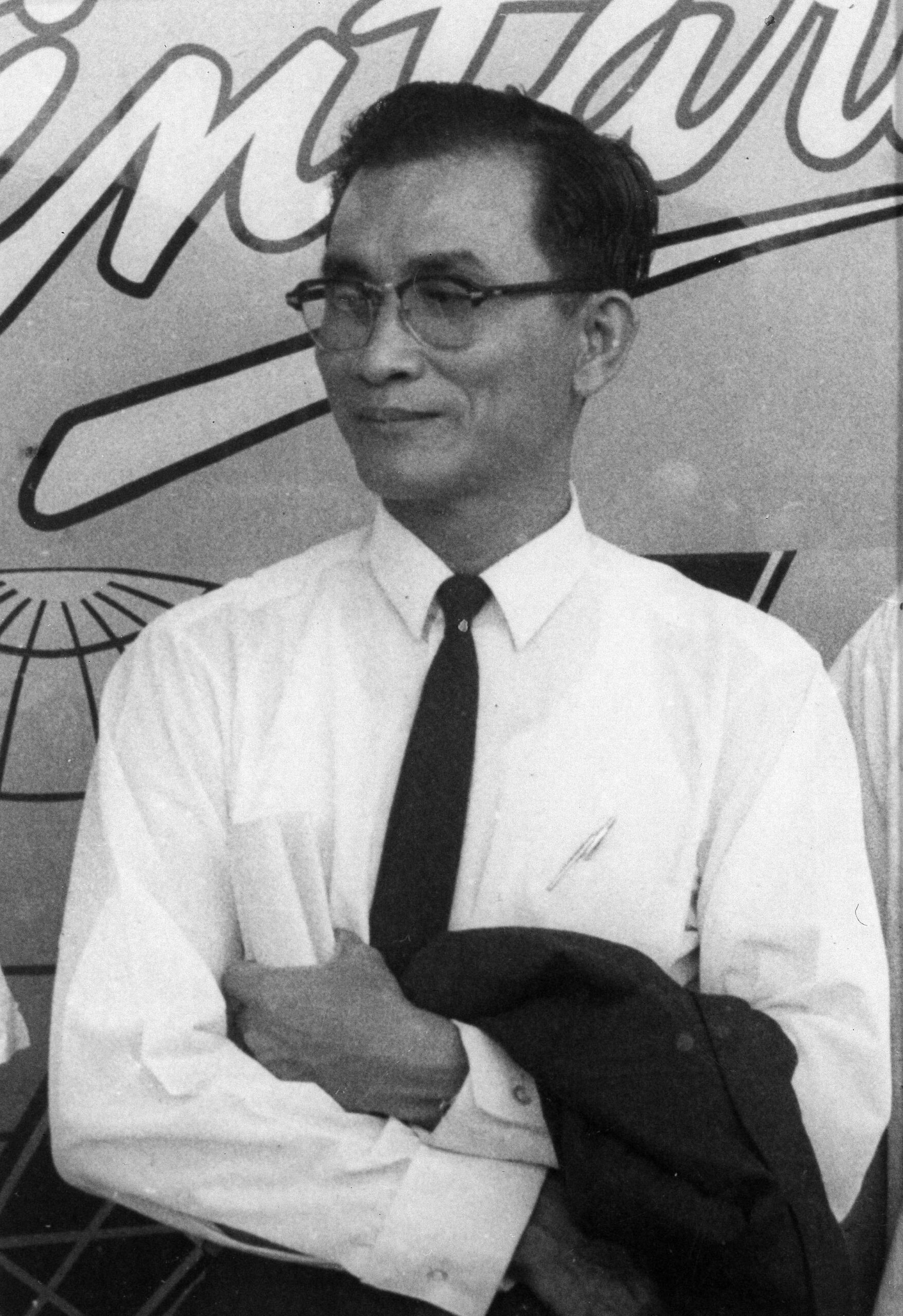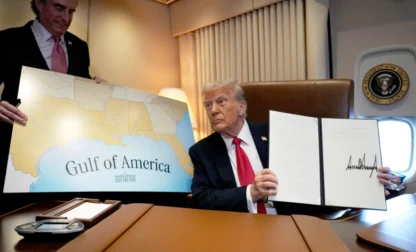YANGON, Myanmar (AP) — Sein Win, a renowned journalist in Myanmar who championed press freedom and endured three stints in prison as he chronicled several decades of his country's turbulent history, died Thursday at age 91.

His family said he died in a Yangon hospital after a long period of ill health.
Sein Win’s work won him international honors, but in his own country his accomplishments were rewarded with jail time and a quarter-century ban on foreign travel.
He was The Associated Press’ correspondent in Yangon, Myanmar’s largest city, from 1969 to 1989. His daughter Aye Aye Win has held the job since then.
Sein Win began his journalism career after the 1942 Japanese invasion of what was then called Burma. He started as an unpaid translator at a Burmese-language newspaper, and later worked as an apprentice reporter, editor, publisher and foreign correspondent.
He worked under Japanese occupation, British colonialism, parliamentary democracy and military rule. He lived long enough to see censorship lifted, and the return this year of private daily newspapers under the elected government that took over from the military in 2011.
“In my experience as a journalist for over 40 years under various types of governments, I always find the independent press as a suspect and victim of the governments,” he said in a 1989 speech to the International Press Institute in Berlin. “The colonial government regarded the independent press as a rebel. The national democratic governments treated us like their rival and the national autocratic regimes branded the free press as enemy.”
The son of a junior civil servant, Sein Win was born Feb. 12, 1922, in Kyaunggon, a town west of Yangon, which at the time was the capital and known as Rangoon.
As the Japanese were defeated and the British returned, Sein Win was part of a tiny circle of educated Burmese that included the country’s independence leaders. Most belonged to the Anti-Fascist Peoples Freedom League, the party of Gen. Aung San, father of the country’s current opposition leader, Aung San Suu Kyi.
Sein Win recounted in a 2002 interview that he was one of the few reporters with a motorbike, and all but the top independence leaders would grab rides with him. Because he wore a respectable-looking U.S. Army surplus uniform, police waved him through checkpoints, so the AFPFL used him to carry sensitive material such as documents.
He said he was “very happy” to be able to help the party, “maybe partly because I was young and adventurous.”
On July 19, 1947, as Britain was preparing to grant Burma independence, Aung San and six ministers in his transitional Cabinet were assassinated. Sein Win mused later that if a heavy rain had not forced him to turn back and let another reporter cover the meeting, he might also have been killed.
Independence came in 1948, but repressive colonial-era press laws remained in place under the parliamentary government of Prime Minister U Nu.
“Heavy security deposits were demanded from critical newspapers, and editors and newsmen were arrested on flimsiest charges,” Sein Win said in his Berlin speech.
Sein Win became editor and publisher of the Burmese newspaper The Guardian in 1958. He was jailed for nearly a month in 1960, though the charges were eventually dropped.
The dark ages of Burmese journalism began after a military coup ousted the parliamentary government in March 1962. The Guardian and other daily newspapers were nationalized.
In 1963, Sein Win earned a seat on the International Press Institute’s board and the Golden Pen of Freedom award from the International Federation of Newspaper Publishers. It was another quarter-century before was he allowed to travel abroad to meet IPI colleagues and collect his award.
Strongman Gen. Ne Win tossed thousands of real or imagined opponents into jail. “I was one of them, spending three years under ‘protective custody’ without interrogation or trial,” Sein Win recounted later.
Sein Win joined the AP in 1969 and became one of the few sources for news from the isolated country.
“Without him, we would have been lost,” said Denis Gray, who oversaw Burma coverage as the news agency’s bureau chief in neighboring Thailand from 1976 to 2011. He called Sein Win “an absolute gold mine of knowledge.”
A pro-democracy uprising challenged Ne Win’s erratic and despotic rule in 1988. Its first wave was crushed, and although Ne Win formally ceded power, the shadow government he installed rounded up people he felt had betrayed him. One of the alleged plotters was a news source and a friend of Sein Win.
On the night of July 28, 1988, AP’s bureau in Bangkok received a telex from his family.
“Daddy has been taken away,” it read. “He won’t be available to answer your queries.”
Sein Win was held for 28 days in Yangon’s Insein prison, but when he was released, he later wrote, supporters of democracy appeared to be gaining the advantage.
“For the first time in a quarter-century, people — thousands and thousands of them — were chanting, crying for democracy, and there were no secret police, no soldiers with bayonets fixed and with fingers on the triggers to stop the demonstrators,” he wrote.
But the army soon reasserted its authority. In 1989, Suu Kyi was placed under house arrest, where she would remain for about 15 of the next 20 years. Her party won elections in 1990, but the military government refused to step aside.
Sein Win gave up his AP job in 1989 and was succeeded by Aye Aye Win. He worked for Japan’s Kyodo News Service before retiring.
More than two decades later, in 2011, a semblance of democracy was restored when a military-backed but elected government took power. Some of the most notable reforms initiated since then by President Thein Sein have improved freedom of the press.
___
Grant Peck reported from Bangkok.




